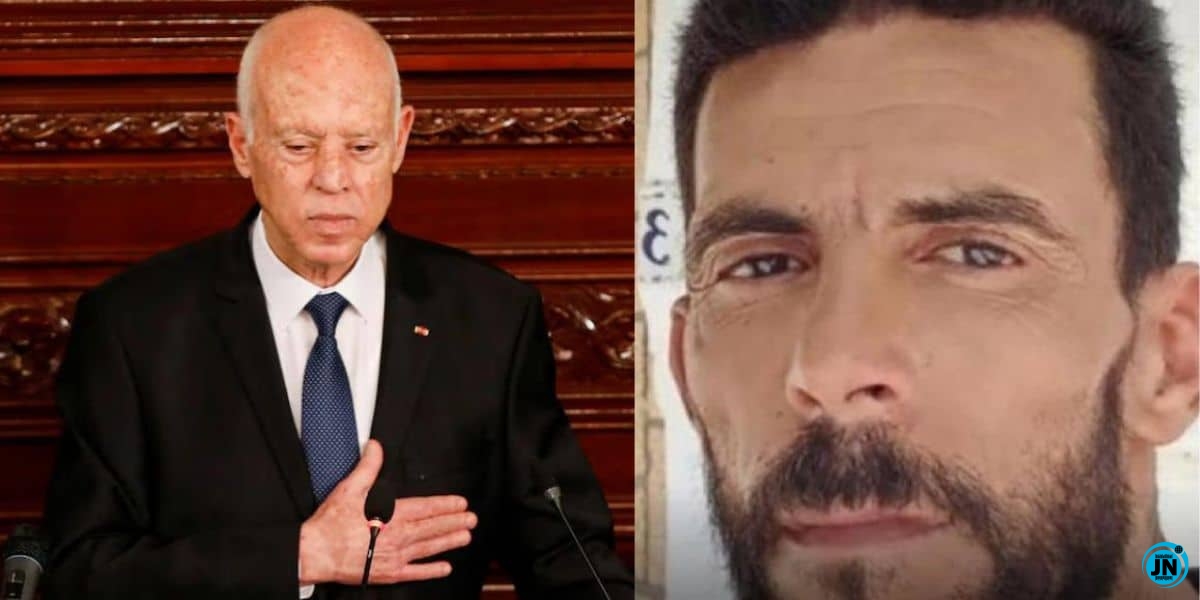
A Tunisian court has handed down a death sentence to 56-year-old Saber Chouchane, a day labourer, over accusations that he insulted Tunisia’s President Kais Saied and undermined state security through a series of Facebook posts. The ruling, delivered by a court in Nabeul, has sent shockwaves throughout the nation and triggered widespread outrage both domestically and internationally.
Human rights organizations, activists, and legal experts have condemned the verdict, describing it as an alarming escalation in Tunisia’s crackdown on free speech. Chouchane’s defence lawyer, Oussama Bouthalja, called the decision “a shocking and unprecedented ruling,” arguing that his client was simply exercising his right to freedom of expression — a right supposedly guaranteed under Tunisia’s constitution.
According to court documents, Chouchane was arrested in 2024 following a series of Facebook posts criticizing President Saied’s policies and accusing his administration of corruption and authoritarianism. He was charged under Tunisia’s national security laws, which carry severe penalties for statements deemed to “undermine the state or its institutions.”
His lawyer revealed that the prosecution built its case primarily on Chouchane’s online posts, with no evidence of violent acts or incitement. “He was convicted for words — not for actions,” Bouthalja said. “This is an attack on every Tunisian’s freedom to express opinions, whether online or offline.”
In a tearful interview, Chouchane’s brother, Jamal, said the family is devastated by the ruling. “We can’t believe it. We are poor people who live day to day, and now oppression and injustice have been added to our suffering. My brother never harmed anyone. He only spoke his mind,” he said.
The verdict has intensified outrage across social media, where citizens and human rights defenders accused Tunisian authorities of weaponizing the judiciary to silence dissent. Hashtags such as #FreeSaber and #JusticeForChouchane have begun trending, with thousands calling for international intervention and pressure on the government.
Observers note that while Tunisia continues to issue death sentences, no execution has been carried out in over 30 years. However, critics argue that the symbolic use of such a sentence in a case of free speech sets a dangerous precedent and signals a return to authoritarian practices reminiscent of pre-revolution Tunisia.
President Saied, who seized extraordinary powers in 2021 by dissolving parliament and ruling by decree, has been accused of suppressing political opposition, arresting journalists, and tightening control over the judiciary. His government insists that such measures are necessary to preserve national stability and combat corruption, but opposition leaders and civil society groups argue that Tunisia’s democracy is rapidly eroding.
In the wake of the ruling, several international human rights groups, including Amnesty International and Human Rights Watch, have demanded that the death sentence be overturned and that Tunisia uphold its commitments to freedom of expression and human rights protections. “Punishing a man with death for Facebook posts is an egregious violation of international law and basic human decency,” Amnesty stated in a press release.
An appeal has already been filed by Chouchane’s defence team, and hearings are expected in the coming weeks. Meanwhile, protests have been planned in Tunis and other major cities, as citizens call for justice and the protection of civil liberties. The outcome of the appeal may prove to be a defining moment for Tunisia’s fragile democracy and its reputation on the global stage.
As the world watches, the case of Saber Chouchane has become a symbol of the growing struggle for freedom of speech in Tunisia — a nation once hailed as the only success story of the Arab Spring, now grappling with renewed fears of political repression and authoritarian rule.